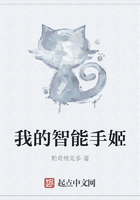In that direction they accordingly went;and as they ascended to higher ground their attention was attracted by a light beyond the houses,quite at the top of the lane.
The road from Chalk-Newton to Broad Sidlinch is about two miles long and in the middle of its course,where it passes over the ridge dividing the two villages,it crosses at right angles,as has been stated,the lonely monotonous old highway known as Long Ash Lane,which runs,straight as a surveyor's line,many miles north and south of this spot,on the foundation of a Roman road,and has often been mentioned in these narratives.Though now quite deserted and grass-grown,at the beginning of the century it was well kept and frequented by traffic.The glimmering light appeared to come from the precise point where the roads intersected.
'I think I know what that mid mean!'one of the group remarked.
They stood a few moments,discussing the probability of the light having origin in an event of which rumours had reached them,and resolved to go up the hill.
Approaching the high land their conjectures were strengthened.Long Ash Lane cut athwart them,right and left;and they saw that at the junction of the four ways,under the hand-post,a grave was dug,into which,as the choir drew nigh,a corpse had just been thrown by the four Sidlinch men employed for the purpose.The cart and horse which had brought the body thither stood silently by.
The singers and musicians from Chalk-Newton halted,and looked on while the gravediggers shovelled in and trod down the earth,till,the hole being filled,the latter threw their spades into the cart,and prepared to depart.
'Who mid ye be a-burying there?'asked Lot Swanhills in a raised voice.'Not the sergeant?'The Sidlinch men had been so deeply engrossed in their task that they had not noticed the lanterns of the Chalk-Newton choir till now.
'What--be you the Newton carol-singers?'returned the representatives of Sidlinch.
'Ay,sure.Can it be that it is old Sergeant Holway you've a-buried there?'
''Tis so.You've heard about it,then?'
The choir knew no particulars--only that he had shot himself in his apple-closet on the previous Sunday.'Nobody seem'th to know what 'a did it for,'a b'lieve?Leastwise,we don't know at Chalk-Newton,'continued Lot.
'O yes.It all came out at the inquest.'The singers drew close,and the Sidlinch men,pausing to rest after their labours,told the story.'It was all owing to that son of his,poor old man.It broke his heart.''But the son is a soldier,surely;now with his regiment in the East Indies?''Ay.And it have been rough with the army over there lately.'Twas a pity his father persuaded him to go.But Luke shouldn't have twyted the sergeant o't,since 'a did it for the best.'The circumstances,in brief,were these:The sergeant who had come to this lamentable end,father of the young soldier who had gone with his regiment to the East,had been singularly comfortable in his military experiences,these having ended long before the outbreak of the great war with France.On his discharge,after duly serving his time,he had returned to his native village,and married,and taken kindly to domestic life.But the war in which England next involved herself had cost him many frettings that age and infirmity prevented him from being ever again an active unit of the army.When his only son grew to young manhood,and the question arose of his going out in life,the lad expressed his wish to be a mechanic.But his father advised enthusiastically for the army.
'Trade is coming to nothing in these days,'he said.'And if the war with the French lasts,as it will,trade will be still worse.The army,Luke--that's the thing for 'ee.'Twas the ****** of me,and 'twill be the ****** of you.I hadn't half such a chance as you'll have in these splendid hotter times.'Luke demurred,for he was a home-keeping,peace-loving youth.But,putting respectful trust in his father's judgment,he at length gave way,and enlisted in the --d Foot.In the course of a few weeks he was sent out to India to his regiment,which had distinguished itself in the East under General Wellesley.
But Luke was unlucky.News came home indirectly that he lay sick out there;and then on one recent day when his father was out walking,the old man had received tidings that a letter awaited him at Casterbridge.The sergeant sent a special messenger the whole nine miles,and the letter was paid for and brought home;but though,as he had guessed,it came from Luke,its contents were of an unexpected tenor.
The letter had been written during a time of deep depression.Luke said that his life was a burden and a slavery,and bitterly reproached his father for advising him to embark on a career for which he felt unsuited.He found himself suffering fatigues and illnesses without gaining glory,and engaged in a cause which he did not understand or appreciate.If it had not been for his father's bad advice he,Luke,would now have been working comfortably at a trade in the village that he had never wished to leave.
After reading the letter the sergeant advanced a few steps till he was quite out of sight of everybody,and then sat down on the bank by the wayside.
When he arose half-an-hour later he looked withered and broken,and from that day his natural spirits left him.Wounded to the quick by his son's sarcastic stings,he indulged in liquor more and more frequently.His wife had died some years before this date,and the sergeant lived alone in the house which had been hers.One morning in the December under notice the report of a gun had been heard on his premises,and on entering the neighbours found him in a dying state.He had shot himself with an old firelock that he used for scaring birds;and from what he had said the day before,and the arrangements he had made for his decease,there was no doubt that his end had been deliberately planned,as a consequence of the despondency into which he had been thrown by his son's letter.The coroner's jury returned a verdict of felo de se.















